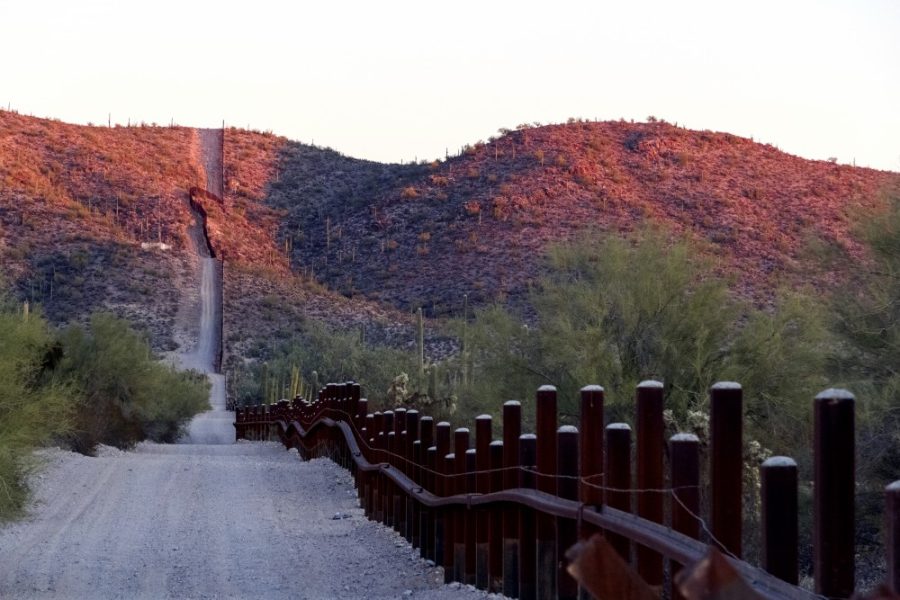The American Civil Liberties Union and three unnamed plaintiffs are proceeding with their lawsuit against the federal Border Patrol and the Department of Homeland Security for having unconstitutional conditions in its Tucson sector facilities.
The lawsuit seeks to change these conditions because they “violate standards of decency in any civilized society in violation of the due process clause,” according to Dan Pochoda, senior counsel at the ACLU of Arizona, and one of the attorneys on the case.
The lawsuit focuses on six to eight facilities in the Tucson sector where undocumented immigrants are detained.
According to the court documents of the defendants’ motion to dismiss the lawsuit, the facilities are made for the short-term holds.
“Border Patrol stations are not designed for long-term care or detention; rather they are short-term facilities, and every effort is made to promptly process, transfer or remove those in custody at the stations as quickly as is appropriate and operationally feasible,” the government attorneys said.
However, Pochoda said many detainees are there anywhere between one to five days.
In these facilities, detainees “have been packed into overcrowded and filthy holding cells with the lights glaring day and night,” according to the plaintiff’s complaint detailed in court documents.
Pochoda also said that detainees do not have beds and instead are given foil blankets, they also have to sleep in the same room where the toilets are located.
“They’re just deprived of basic necessities of life, and are run in an unconstitutional manner. They don’t provide the minimums required to meet constitutional standards that are there for people who are detained by the government,” Pochoda said. “In any civilized society you can’t just do that to people. That’s unacceptable on a human level and also on a constitutional level.”
Pochoda said he and the other plaintiffs are looking for “injunctive relief,” so that there is a change in the conditions of the facilities, rather than damages. He said that none of the plaintiffs will receive money from this lawsuit and counsel is working without being paid. However, if they win the lawsuit, according to Pochoda, they can receive “monies pursuant to the statutes from the federal government.”
Two recent court decisions have shaped the case so far.
Last week, the court did not approve the defendants’ motion to dismiss the case. According to Pochoda, the defendants believed that the individuals on the plaintiff side—those who were detained in the Tucson sector facilities—could not maintain the lawsuit because they aren’t in the facilities now.
Further, the motion to dismiss the lawsuit states that those detained were apprehended and believed to be “unlawfully present in the United States.”
The court ruled that the plaintiffs were in the facilities at the time the lawsuit was filed.
“If the standard was if you’re not around and subjected to the wrongs that you’re complaining about for the entire time in the litigation, many things would go without the possibility of judicial review,” Pochoda said.
Second, the court granted the plaintiff’s request for class certification, which would let the plaintiffs represent all people currently detained, people who will be detained in the future and themselves.
“It makes a significant difference on the scope of any remedy,” Pochoda said. “The potential for harm [in these facilities] is there for everybody.”
This kind of class certification can be difficult to get the judge to allow, according to Derek Bambauer, a UA professor of law who is not part of this lawsuit, but has worked with the ACLU on another suit against Border Patrol.
“It’s a mark of success for the ACLU at this point,” he said.
Though this may be a success for the ACLU now, the lawsuit process is just starting. Pochoda said that the lawsuit is “nowhere near trial” and right now they are in the process of gathering information.
In the meantime, the ACLU has requested a preliminary injunction in order to make changes to the Border Patrol facilities while the lawsuit plays out.
“I think that clearly it’s the sort of thing where the injunction should be granted, but courts are sort of wary about this type of thing,” Bambauer said. “Even if it’s the right call legally, the ACLU has a little bit of an uphill battle in terms of getting the injunction granted.”
During the writing process, the reporter reached out to the defendents and they did not provide a response at this time. This story will be updated as more information is released.
Follow Ava Garcia on Twitter









